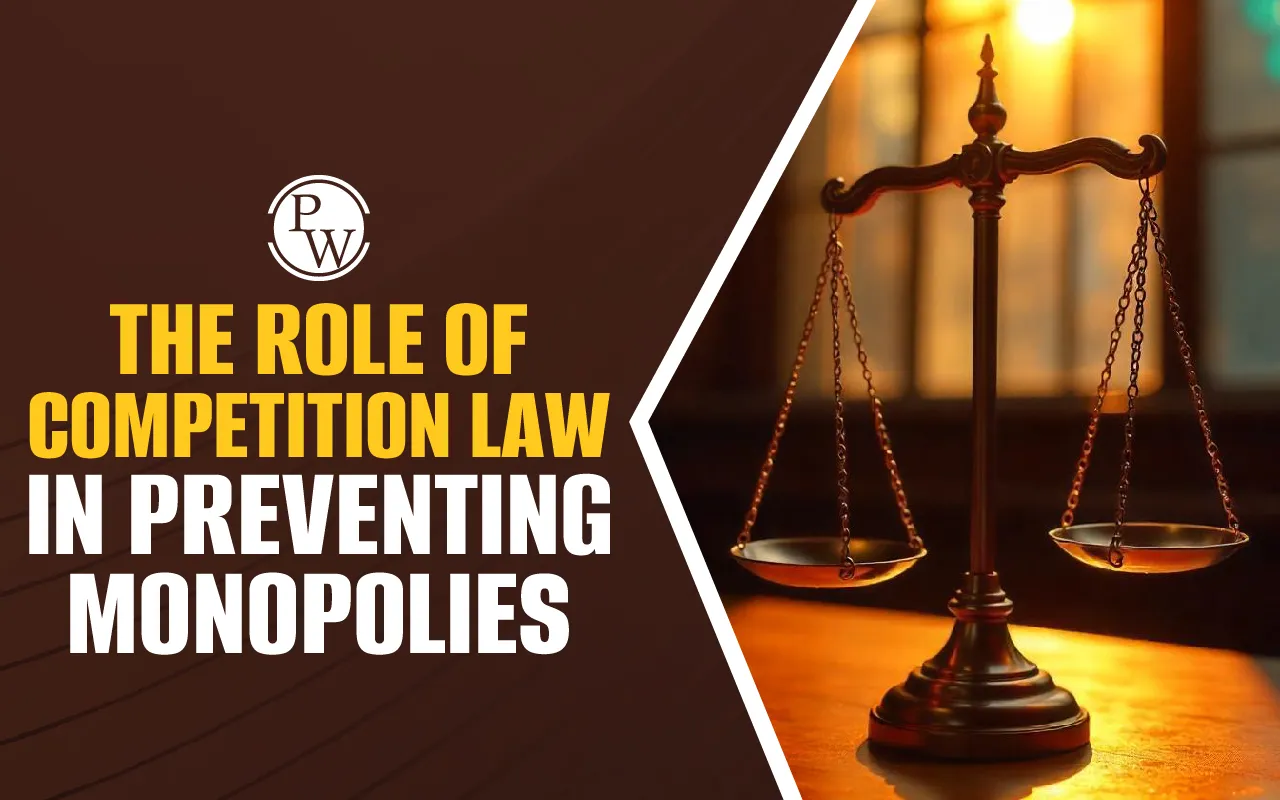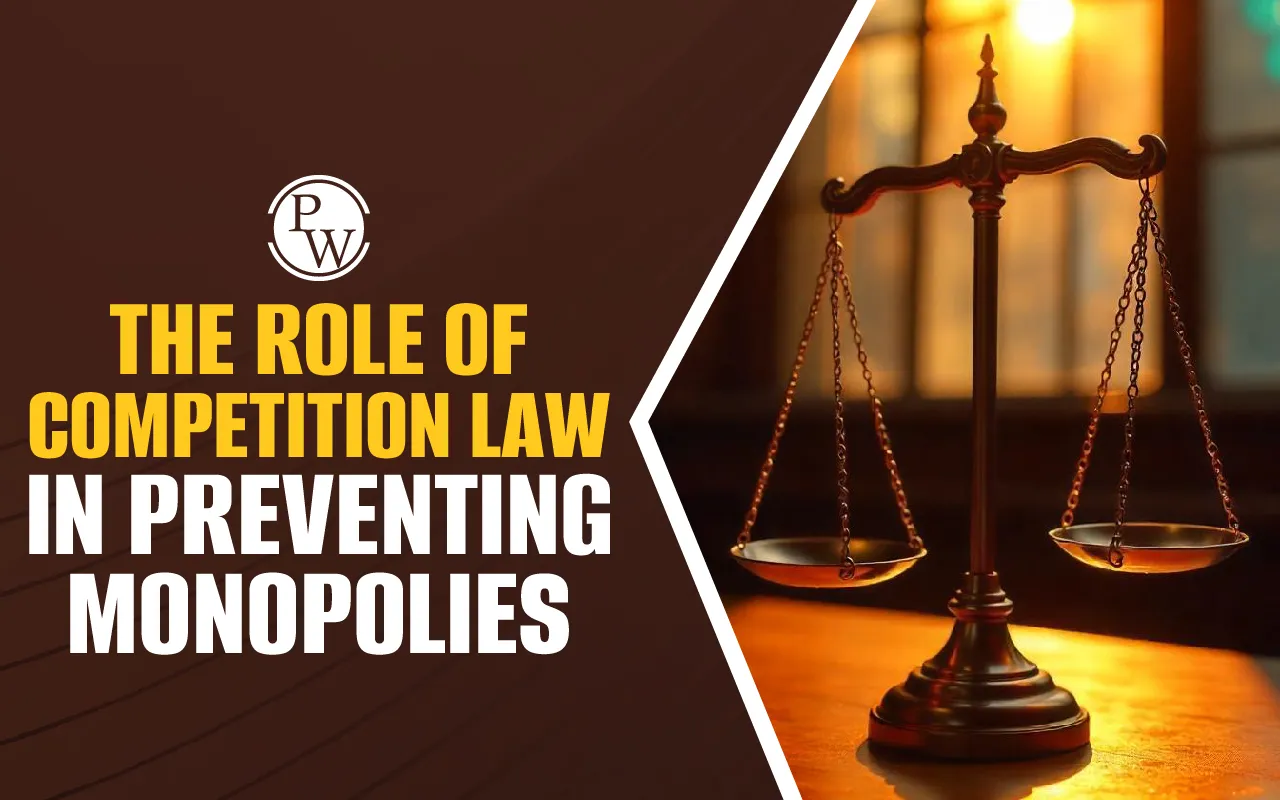

Role of Competition Law in Preventing Monopolies: In a free-market economy, the presence of fair competition is essential for economic growth, innovation, and consumer welfare. However, when monopolies dominate the market, they often lead to reduced choices, inflated prices, and stifled innovation. This is where competition law plays a crucial role. The role of competition law in preventing monopolies is fundamental to maintaining a healthy economic environment where businesses can thrive and consumers benefit from better services and prices.
What is Competition Law?
Competition law, also known as antitrust law in some countries, refers to regulations that promote fair competition in the marketplace. These laws aim to prevent anti-competitive practices such as price-fixing, market sharing, abuse of dominance, and mergers that significantly reduce market competition. The Role of Competition Law in Preventing Monopolies becomes clear when examining how these regulations dismantle unfair market practices that lead to dominance by a single or few entities.
The Concept of Monopoly
A monopoly exists when a single company or group has exclusive control over a commodity or service in a particular market. Such dominance allows them to dictate prices, restrict supply, and reduce the incentive to innovate. This negatively impacts consumers and other businesses. The Role of Competition Law in Preventing Monopolies is to counteract these negative effects by ensuring that markets remain open and competitive.
Key Objectives of Competition Law
Understanding the purpose of competition law helps to grasp its real impact on economies and consumers. The following objectives highlight why the Role of Competition Law in Preventing Monopolies remains indispensable in modern markets.
Promoting Consumer Welfare: One of the primary aims of competition law is to protect consumer interests. When markets are competitive, consumers enjoy more choices and fair pricing.
Ensuring Market Access: Competition law ensures that new businesses can enter the market without facing unfair barriers created by dominant firms.
Preventing Abuse of Market Power: The Role of Competition Law in Preventing Monopolies is vital in regulating firms that misuse their dominant position to eliminate competition.
Encouraging Innovation: A competitive environment encourages businesses to innovate and improve their offerings.
How Competition Law Works
Enforcing competition law typically involves monitoring mergers and acquisitions, investigating anti-competitive agreements, and taking action against abuse of dominant positions. Authorities such as the Competition Commission of India (CCI) are responsible for implementing these laws in the Indian context.
The Role of Competition Law in Preventing Monopolies includes assessing whether a proposed merger would lead to an unfair concentration of market power. If such a risk is detected, regulatory bodies may either block the deal or approve it with conditions that maintain market fairness.
Real-World Applications
Several case studies highlight the Role of Competition Law in Preventing Monopolies. In India, the CCI has taken action against companies involved in price collusion, abuse of dominance, and other unfair practices. For instance, penalties have been imposed on tech firms and automobile manufacturers for restricting market competition. These actions serve as deterrents and reinforce the importance of competition law.
Challenges in Implementing Competition Law
While the Role of Competition Law in Preventing Monopolies is clear, implementing these laws comes with its own set of challenges:
Digital Market Complexities: The rise of digital platforms has complicated competition law enforcement. Dominant digital firms often operate across borders, making regulatory oversight more difficult.
Limited Awareness: Many businesses, especially small and medium enterprises, are unaware of their rights and obligations under competition law.
Legal and Procedural Delays: The legal process can be time-consuming, which may delay justice and allow anti-competitive practices to continue.
Future Outlook
The future of competition law is closely linked to technological advancement and globalization. Regulators need to adapt quickly to emerging market dynamics. The Role of Competition Law in Preventing Monopolies will become even more crucial as businesses increasingly operate in digital and global markets.
To strengthen enforcement, countries are revisiting their competition policies, improving regulatory frameworks, and enhancing international cooperation. These efforts aim to create a more robust mechanism that can effectively prevent monopolistic practices.
Role of Competition Law in Preventing Monopolies is essential for ensuring market fairness, protecting consumers, and promoting innovation. As markets evolve, especially with the expansion of digital economies, competition law must adapt to remain effective. Governments, businesses, and consumers all have a stake in supporting a legal framework that maintains a level playing field. With stronger enforcement, better awareness, and adaptive policies, the Role of Competition Law in Preventing Monopolies can be further reinforced to build a more inclusive and dynamic economy.
By focusing on proactive enforcement and continuous legal updates, the Role of Competition Law in Preventing Monopolies can serve as a cornerstone for economic justice and sustainability in modern markets. As competition remains a driving force for quality and innovation, upholding these laws is vital for long-term economic health.
Thus, understanding the Role of Competition Law in Preventing Monopolies is important not just for legal professionals but for all economic stakeholders. Whether you are a consumer, entrepreneur, policymaker, or student, recognizing the importance of these laws can contribute to more equitable and dynamic market systems.
Join PW CS Online Courses and build a strong foundation in corporate laws and governance with structured learning and dedicated support.
Role of Competition Law in Preventing Monopolies FAQs
What is the Role of Competition Law in Preventing Monopolies?
How does competition law affect consumers?
Why is the Role of Competition Law in Preventing Monopolies important for startups?













